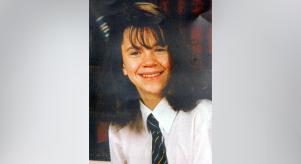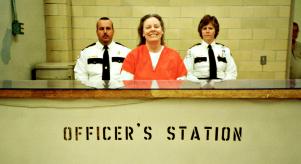
Abuse in British gymnastics
In a world that has a tendency to elevate athletes, it comes as no surprise that much goes unrestricted in the name of success. Thanks to fierce competition, a culture that can create a religion out of sport and often, huge amounts of money at stake, abuse can go unchallenged, especially when it’s the people in positions of power that are behind it—like the coaches, the team doctors, the star-makers.
It’s something we were reminded of when Netflix released Athlete A: the documentary chronicling the abuse of female gymnasts in the USA Gymnastics programme by the team doctor, Larry Nassar. After 156 women came forward, Nassar and USA Gymnastics had its reckoning. Now, it’s British Gymnastics turn.
An independent inquiry has been launched after a number of gymnasts spoke out about the abuse they received within the sport. Unlike their American counterparts, the allegations haven’t centred around sexual assault, but physical and emotional abuse. The allegations include reports of bullying, being starved, beaten and made to train through injuries so severe that prescription painkillers were required to enable them to get through it. What has been happening inside British Gymnastics?
Speaking to ITV News, the junior European and British champion Catherine Lyons described the trauma she received as a gymnast. Starting when she was as young as eight, Lyons described emotional abuse that included being shouted at by her coaches until she cried. They would respond by turning the music up to cover the sound, or even locking in a cupboard until she calmed down. She’d then be made to apologise for her behaviour.
Her coach hit her with a stick
The abuse escalated: aged 10 at a training camp, she was made to starve herself, while training twice a day. When she got home and returned to a normal diet, she was unable to keep the food down. A gymnast that trained with her recalled seeing Lyons slapped by a coach when she didn’t perform properly. At the peak of her abuse, her coach hit her with a stick. Lyons retired aged 15, giving up on her Olympic ambitions to receive treatment. She was diagnosed with PTSD.
Former Great Britain junior gymnast Margaux Derakhshan told Sky News she saw a girl get pushed to the floor, before being dragged off by her hair. Another was thrown by her leotard. Their crimes were the same as Lyons’: failing to perform correctly.
Olympian Lisa Mason echoed the allegations. For her, the abuse started as young as five or six. She would be forced to perform moves on the bars that left the skin on her hands ripped. Surgical spirit would then be poured over them. Astroturf was put under her feet to ensure she kept her legs up or face being burned. At 12, her fellow gymnasts were taking prescription-only Voltarol to get through their sessions, given to them by their coaches. No one spoke out because they were afraid of risking their chances for being chosen for the Olympic team.
Mason isn’t the only Olympian adding her voice to the charges. Amy Tinkler, who became Great Britain’s youngest medallist in Rio at the 2016 Olympics, announced her retirement in January this year. She later spoke out on social media, confirming that it was the trauma of abuse that led to her retirement.
World champion medallists Becky and Ellie Downie have both spoken about the abuse that they say is 'ingrained'. Becky Downie has talked about being trained so hard, she would physically break down. If she complained, she was told that she was weak and the pain was in her head. Her younger sister, Ellie, spoke of an obsessive focus on her weight by coaches who would constantly criticise her size— a focus that left her refusing food and drink the night before a weigh-in. At 14, she was being told to diet and keep strict food diaries, forced to send photos of herself in her underwear to prove that she wasn’t lying about her food intake. At a training camp, she was told to lose 6kg in two weeks or face the consequences.
Rhythmic gymnast Francesca Fox, who competed at the 2012 Olympics, also spoke of the scrutiny over her weight to ITV. Constantly told she was fat and called names, she weighed herself up to 10 times a day.
Much like with USA Gymnastics, the issue appears to be one that has gone unaddressed for years, despite reports from athletes and parents.
In 2017, the Guardian reported the case of a coach who was being questioned by police about child cruelty. The same coach had been reported to British Gymnastics’ welfare team in 2012, after a group of parents reported emotional and physical abuse that took place from 2006 to 2012.
Accusing British Gymnastics of protecting its abusive coaches, Mason has called for British Gymnastics Chief Executive Jane Allen to resign over the scandal. This isn’t the first time in her time at the organisation that Allen has witnessed claims against coaches by athletes; her tenure includes the allegations made by commonwealth champion Dan Keatings, who described in 2017 a “culture of fear” within the sport that made retiring a “relief”.
Keatings’ words reflect those of the female athletes: athletes are too scared to come forward in case they jeopardise their careers. But the systemic issues go beyond that.
Many of the women have said the same thing: that the abuse within gymnastics is normalised. Even from outside the sport, we can see this. We know that gymnastics is incredibly physically demanding and that those that succeed need to push themselves in order to see results. At some point, hearing of injuries becomes the norm: it’s what we expect.
The actions of USA Gymnastics’ athletes and the release of Athlete A might have gone some way to challenge the system, though. British athletes are being emboldened to speak out against the chronic emotional and physical abuse they too have received within the sport and more importantly, people are finally listening to them.




